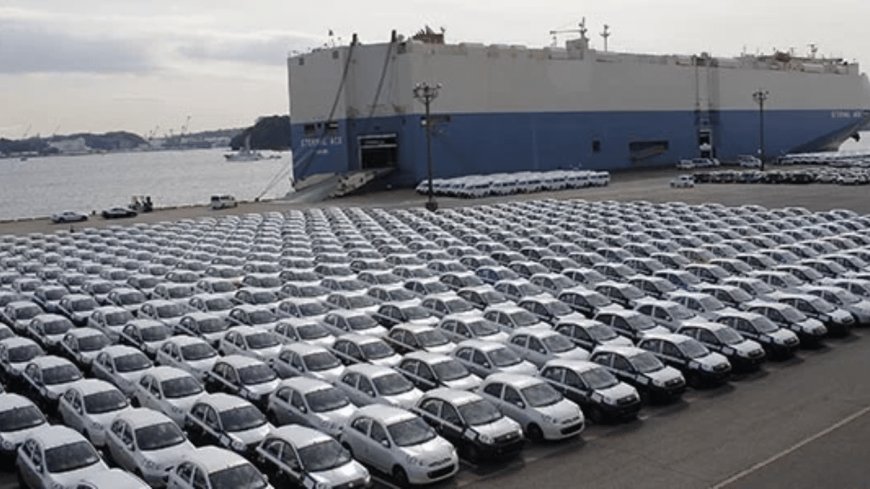The Role of Imports in Shaping the Market for Cheap Cars in Pakistan

The automotive market in Pakistan has evolved significantly over the years, with imports playing a crucial role in shaping the landscape for affordable vehicles. As the demand for budget-friendly cars continues to rise, understanding how imports influence pricing, availability, and consumer preferences is essential. Here’s a closer look at the role of imports in the market for cheap cars in Pakistan.
1. Increased Availability of Affordable Models
Imports have significantly increased the variety of affordable car models available to Pakistani consumers. Many international manufacturers produce budget-friendly models specifically designed for emerging markets, and these models often find their way into Pakistan.
-
Diverse Options: Brands like Suzuki, Toyota, and Hyundai offer economical models that cater to price-sensitive consumers. Imported second-hand cars also flood the market, providing options that may not be available through local manufacturers.
-
Varied Features: Imported cars often come equipped with features that enhance safety, comfort, and fuel efficiency, appealing to consumers looking for value in their purchases.
2. Competitive Pricing
The influx of imported vehicles has intensified competition within the local market, driving prices down for both imported and locally manufactured cars.
-
Price Competition: Local manufacturers must adjust their pricing strategies in response to imported vehicles. The presence of competitively priced imported cars forces local manufacturers to offer better deals, discounts, or features to retain market share.
-
Market Dynamics: With more affordable imported options, consumers are less reliant on local manufacturers, which encourages them to offer more competitive prices for their models.
3. Influence of the Used Car Market
The import of used cars, particularly from countries like Japan, has been a significant factor in the market for cheap cars in Pakistan.
-
Second-Hand Imports: The popularity of importing used cars has introduced many affordable options into the market, allowing buyers to purchase well-maintained vehicles at lower prices compared to new cars.
-
Quality and Reliability: Japanese used cars, known for their durability and reliability, have become a favorite among Pakistani consumers. This trend has further established a culture of second-hand purchases, impacting how new cars are marketed.
4. Impact of Government Policies
Government regulations and policies related to imports can greatly influence the availability and pricing of cheap cars in Pakistan.
-
Import Duties and Tariffs: Changes in import duties can either facilitate or restrict the entry of affordable vehicles. Lowering tariffs on small, fuel-efficient cars can encourage imports, while higher tariffs may reduce the availability of budget-friendly options.
-
Incentives for Local Manufacturing: The government often promotes local manufacturing to boost the economy. While this can enhance domestic production, it may also limit the availability of imported cars, leading to higher prices for locally manufactured models.
5. Economic Factors
The economic environment in Pakistan also plays a pivotal role in shaping the market for cheap cars, influencing both imports and consumer buying power.
-
Inflation and Currency Fluctuations: Economic challenges such as inflation and currency depreciation can impact the affordability of imported cars. As the Pakistani Rupee weakens, the cost of imports rises, making affordable cars more expensive.
-
Consumer Preferences: Economic conditions influence consumer preferences, with many buyers seeking the most cost-effective options. Imports often align with these preferences, providing budget-friendly solutions.
6. Evolving Consumer Preferences
With changing consumer attitudes towards car ownership and a growing emphasis on fuel efficiency, imported cars are becoming increasingly appealing.
-
Demand for Fuel-Efficient Vehicles: As fuel prices fluctuate, consumers are seeking cars that offer better fuel economy. Many imported models prioritize fuel efficiency, aligning with this demand and further shaping market dynamics.
-
Technological Advancements: Imported cars often feature the latest technologies and safety features, which are attractive to consumers looking for modern, efficient vehicles.
7. Influence on Local Manufacturing
The presence of imported vehicles can also influence local car manufacturers in various ways.
-
Innovation and Improvement: To remain competitive, local manufacturers may need to innovate and enhance their offerings, leading to better quality cars at more affordable prices.
-
Market Adaptation: Local manufacturers often adapt their strategies based on consumer preferences highlighted by the success of certain imported models, leading to a better alignment of products with market demands.
Conclusion
Imports play a vital role in shaping the market for cheap cars in Pakistan, influencing availability, pricing, and consumer preferences. The influx of imported vehicles, both new and used, has fostered competition, driving prices down and enhancing the choices available to consumers. As government policies, economic factors, and consumer attitudes evolve, the dynamics of the automotive market will continue to be shaped by the interplay between local manufacturing and imports, ultimately benefiting buyers seeking affordable vehicles.

 muslim
muslim 










